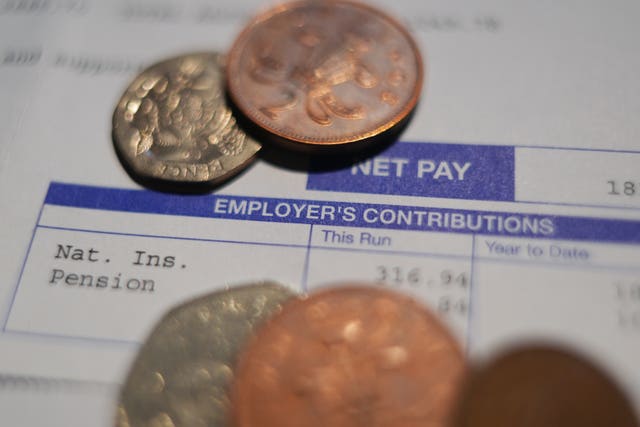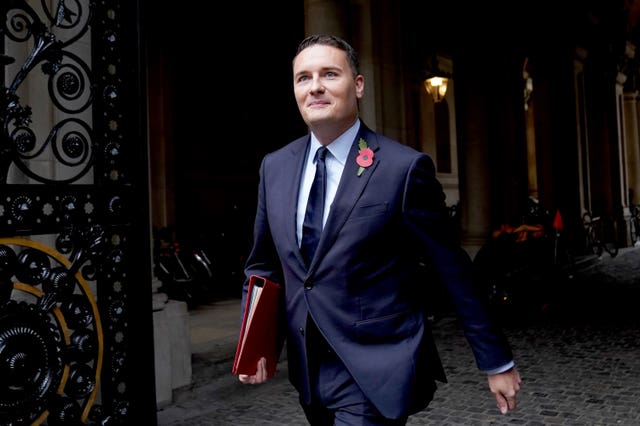It comes amid warnings that some offices will cut staff as a result of the change, while some care homes may be forced to close.
Chancellor Rachel Reeves announced the tax hike on Wednesday as organizations representing care homes and hospices raised concerns about the sector’s ability to fill the funding shortfall.
There are also concerns about the impact on GP surgeries, with one practice manager suggesting it could cost around £40,000 a year.

The Royal College of General Practitioners (RCGP) said it had contacted Wes Streeting seeking assurances that the practices would be protected like “the rest of the NHS and the public sector”.
College chair Professor Camilla Hawthorne said: “Today we are writing to the Health Secretary asking for urgent assurances that GP practices will be given the same protection as the rest of the NHS and the public sector and receive the funding they need to meet these extra costs.
“We have very serious concerns about the impact of the increase in employer national insurance contributions on GP practices across the country, many of which are already struggling to keep their doors open and make ends meet due to historic chronic underfunding.
“They are working their hardest to provide quality care for their patients amid significant budget constraints and staffing challenges – and this added level of uncertainty will only increase those pressures.
“For some, this additional financial burden will be the final straw, forcing them to make difficult decisions about downsizing or even closing their practice, and ultimately our patients will bear the brunt.”

It comes after Shropshire doctor Dr Jess Harvey told BBC Radio 4’s Today program that training was “going to get really tough”.
“During these negotiations for our new contract, unless we get the right pay to cover National Insurance inflation, we’re going to really struggle,” she said.
“There will be practices to start making cuts. There are practices that have already considered redundancies because it is so difficult to run financially and if we don’t get enough money to continue to run those practices then we won’t be able to provide the service that people want.”
Paul Stanley, practice manager at Gas House Lane Surgery in Morpeth, Northumberland, also told the program the changes could cost his surgery around £40,000 a year.
Helen Morgan, the Liberal Democrat health and social care spokeswoman, said: “We are calling on the chancellor to reverse course and exempt GPs from tax rises.
“This new government must not make the same mistakes as the Conservatives, solving the GP crisis is crucial to saving the NHS.
“If people can be screened more quickly, fewer will end up in hospital for treatment.” It’s better for patients, better for the NHS and better for the taxpayer.
Discussing reporting around GPs and the impact of the rise, Downing Street referred to the “annual GP contract process”.
A Number 10 spokeswoman said salaried workers, including GPs, were not eligible to be exempt from the NIC increase, which she said was in line with the approach of previous governments.
“There is a common process where departments, the Department of Health for example, confirm their funding for general practices,” she said.
The spokesman added: “I think this is part of the annual GP contract process. I believe that will happen later in the year.”
A government spokesman said: “We have taken the difficult decisions to fix the foundations so that a £22bn boost to the NHS and social care can be announced in the Budget.
“The rise in employer national insurance does not start until April and we will be setting out further details on next year’s funding allocation in due course.”
Meanwhile, a care group has also called on the Government to exempt social care providers from the rise or funding to cover it.
Independent Care Group (ICG) chairman Mike Padgham said: “The Government needs to do something and it needs to be done quickly as I’m already hearing from providers that this could be the last straw for some of them.”
Geoff Butcher of Blackadder Corporation, which owns a number of care homes in England, said he believed the rise in National Insurance Contributions (NIC) for employers could lead to some homes closing.
He told the Today programme: “We certainly won’t be taking on any additional staff. We will have to reduce the improvements.
“I know colleagues in other services are considering redundancies and I think this will worsen the rate of home closures and the return of contracts from other services, including domiciliary (home) care.”
He said the £600m funding for local authorities for both adult and children’s social care announced in the Budget, “if it goes through”, would equate to around just £350 per social worker cares.
He said: “Staff costs are 80% of our total costs. There is nowhere to go on this matter.
He said he found it “extraordinary that year after year governments find billions to support people like Ukraine, but we don’t find money to support our very vulnerable people – I think that’s a huge reflection on our society”.
Care England, which represents social care providers for the elderly, said the rise in National Insurance combined with wage rises would leave the sector with “an additional funding hole of around £2.4bn to plug”.
On social care, Number 10 said: “We are taking action to support the social care sector as a whole. There has been a real increase in the basic spending power of local government and I think at least £600m of new grant funding has been made available to deal with the pressures on the sector.’
